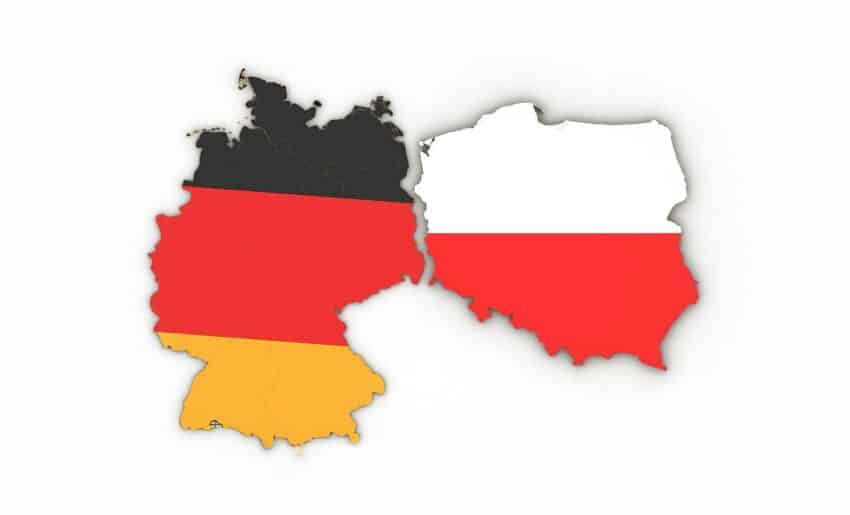Issues such as the state of Polish democracy, coal industry concerns, the rise of nationalism, and Polish-Ukrainian dialogue are all subjects of interest for German foundations operating in Poland. Political mainstream foundations from Germany conduct intellectual activities in Poland that surpass those of all Polish political parties combined. The Konrad Adenauer Foundation alone has an annual budget of €100 to €200 million for research, expert analyses, academic work, publishing, and organizing symposiums and congresses.
With such financial resources, these foundations can shape public opinion and influence the perspectives of citizens in countries like Poland, the Czech Republic, and Lithuania. Particularly susceptible are students drawn to the “modern” worldview of the West. This influence is facilitated by the rapid increase in student numbers, which has led to a decline in their intellectual standards and critical thinking skills. University faculty members, in turn, benefit financially by delivering speeches or interviews aligned with the ideological perspectives promoted by these foundations.
The Konrad Adenauer Foundation’s Role in Poland
Leading this effort is the Konrad Adenauer Foundation, affiliated with Germany’s Christian Democratic political stream. In Poland, it promotes the idea that Władysław Bartoszewski is one of the most outstanding Poles, second only to Pope John Paul II. In April, a letter of intent was signed between the University of Warsaw and the Konrad Adenauer Foundation to support the Tadeusz Mazowiecki Chair, which was established in 2015 to foster civic attitudes and cultivate social and political elites who analyze global changes critically.
The Foundation actively supports lectures, seminars, and conferences under this initiative.
“The names of Mazowiecki and Adenauer represent shared values that define a certain approach to politics, and these are the values we want to promote further,”
said Christian Schmitz, director of the Konrad Adenauer Foundation in Poland.
Foundation gained attention for funding a Constitutional Tribunal conference with a grant of 20,000 PLN. The Foundation’s leadership insists that they do not wish to engage in Poland’s political disputes but rather support the country’s development in a way that benefits both Poland and Europe. They also reject claims that their support represents “German money,” stating that their funding does not come directly from the German state and that the Foundation is apolitical with Christian roots (sic!).
The Heinrich Böll Foundation and Environmental Activism
The Heinrich Böll Foundation, aligned with Germany’s Green Party, advocates for abortion rights, same-sex unions, and—interestingly—opposition to coal energy. In Poland, a country with nearly 90% of the EU’s coal reserves, it published The Coal Atlas, a compilation of articles and infographics on global mining industries. The publication claims to “provide a factual discussion on gradually phasing out coal as an energy source” and encourages a critique of the existing energy system and resource exploitation.
The question remains: in which other country would foreign entities be allowed to operate freely while promoting policies that harm its national economy?
The Friedrich Naumann Foundation and Social Liberalism
The Friedrich Naumann Foundation, representing liberal ideals, collaborates in Poland with the Projekt: Polska Association. While this organization is not widely recognized, its Project HejtStop initiative gained attention for reporting Mariusz Pudzianowski to the prosecutor’s office after he criticized the EU’s immigration policy and expressed concerns about the potential influx of Islamic refugees.
Adam Bodnar, former Polish Ombudsman supported this association, which aims to eliminate nationalist views from the public space. The organization has received financial support not only from its German benefactors but also from Poland’s Civic Platform (PO) government, which allocated 258,000 PLN in one year alone. This included a 70,000 PLN grant from the Ministry of Culture and National Heritage for a project assessing “openness” within cultural institutions—a vague initiative that epitomizes the ideological shaping of Polish society.
The Polish-German Cooperation Foundation
Another influential entity is the Polish-German Cooperation Foundation, which funds joint Polish-German projects and participates in selected cultural and historical initiatives. The Foundation encourages applications for funding projects aligned with German interests, such as promoting the Euro currency. It also engages in commemorating victims of World War II atrocities, yet often refers to “victims of Hitler’s crimes” rather than explicitly recognizing them as “German crimes.”
Since 2009, one of the Foundation’s board members has been Krzysztof Miszczak, who previously served as a government advisor and was accused by bloggers of falsely using the title of “professor.” This has led to speculation that his self-attributed academic credentials helped him secure government positions and influence Polish foreign policy.
The Foundation also funds the website eastbook.eu, a project by the Common Europe Foundation. The chairman of its advisory board, Łukasz Purski, previously collaborated with MEP Paweł Kowal. Purski has written articles criticizing Poland’s ruling party for not being sufficiently pro-Ukrainian, despite PiS’s overt support for Ukraine. The organization also works with Ukrainian media outlets that provide a distorted portrayal of Poland abroad.
The True Role of German NGOs in Poland
In summary, German foundations wield significant financial power in Poland. Regardless of their political affiliations within Germany, they collectively work to advance German interests.
Their activities impact Poland’s moral landscape, economic policies, and the political figures deemed acceptable by German political elites.
Through German funding, Polish youth are ideologically shaped, traditional family structures are challenged, and university faculties are influenced to adopt specific viewpoints. These foundations determine who is labeled as a “fascist” in Poland, thereby weakening national cohesion and destabilizing the state.
This occurs under the watchful eyes of Polish politicians and security agencies, with little resistance from successive governments since the establishment of the Third Republic of Poland.
Source: Miksa: Niemieckie fundacje na straży ładu i porządku w Polsce
